Covid: Antibody therapy wins approval and NI sees cases surgeon August 20, 2021 at 4:34 pm
Five things you need to know about the coronavirus pandemic this Friday evening.
Here are five things you need to know about the coronavirus pandemic this Friday evening. We’ll have another update for you tomorrow morning.
A new Covid treatment that uses laboratory-made antibodies to attack the virus has been approved in the UK. The drug Ronapreve – known as REGEN-COV in the US – has been shown to prevent infections and reduce the need for hospital treatment, the regulator said. Made by the US company Regeneron and Switzerland’s Roche, it was famously part of the experimental treatment given to former US President Donald Trump. The drug is expected to be used by the NHS soon but it is expensive and is likely to be reserved for those most at risk of getting seriously ill. Experts said it may be used for those who do not respond to the vaccine, because their immune systems are compromised. Meanwhile, AstraZeneca announced another antibody treatment – delivered by injection and lasting up to a year – cuts the risk of Covid symptoms by 77%.
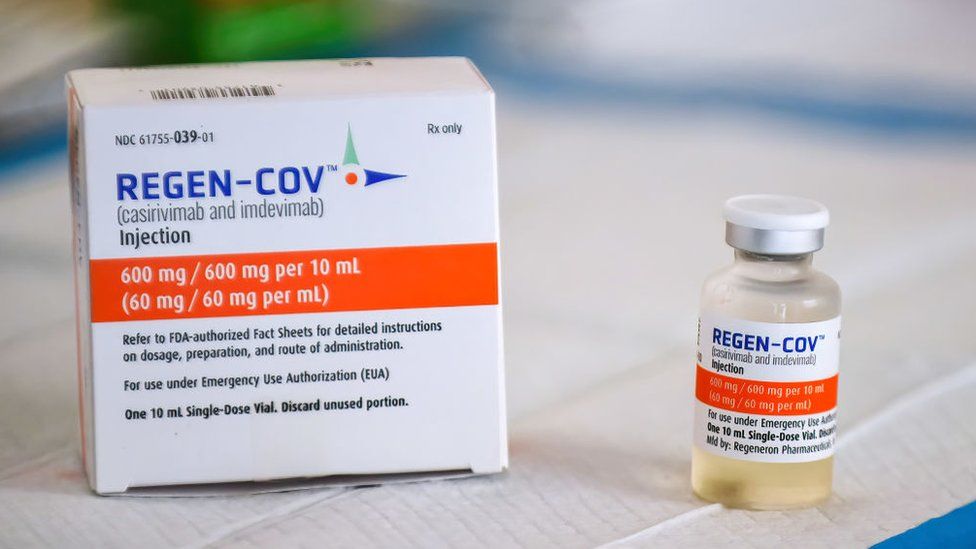
image sourceGetty Images

Northern Ireland has reported its largest number of Covid-19 cases in a single day since the pandemic began. With 2,397 cases recorded on Friday, and an infection rate of more than 525 per 100,000 people over the past seven days, Northern Ireland has the highest rate of cases in the UK. One critical care consultant warned the situation was as difficult now as at any point in the pandemic and said he feared lives could be lost if other conditions went untreated at over-capacity hospitals. Health Minister Robin Swann has said vaccinating just 5% more adults in Northern Ireland could cut hospital admissions in half.
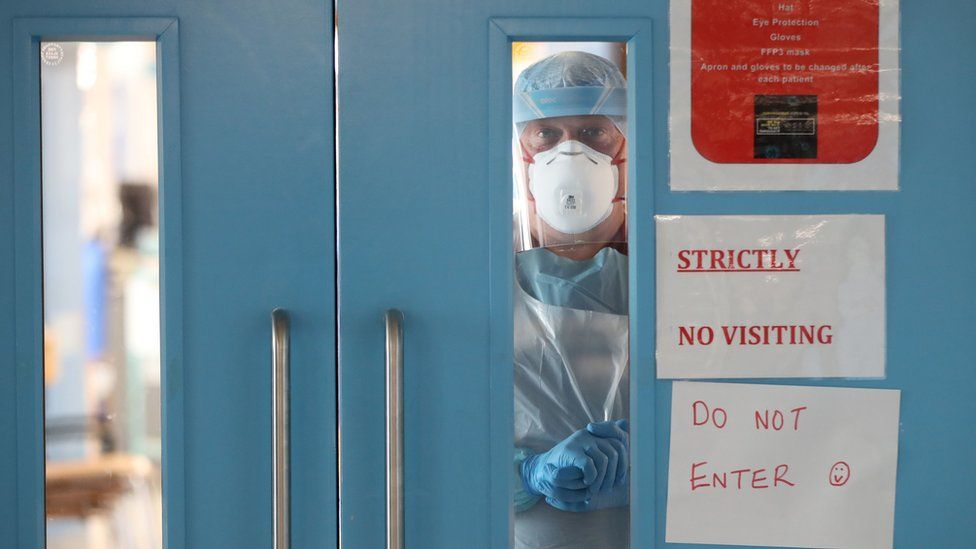
image sourcePA Media

A specialist agricultural and veterinary institution has banned students who have not had a Covid-19 vaccine from living on campus. Hartpury University and College is thought to be the first higher education institution to make vaccination compulsory. Hartpury said it was also likely to limit unvaccinated students’ access to social events and venues. The rule will not apply to people with medical exemption, however. The university said it expects all eligible students will take up the offer of vaccination as soon as they can.
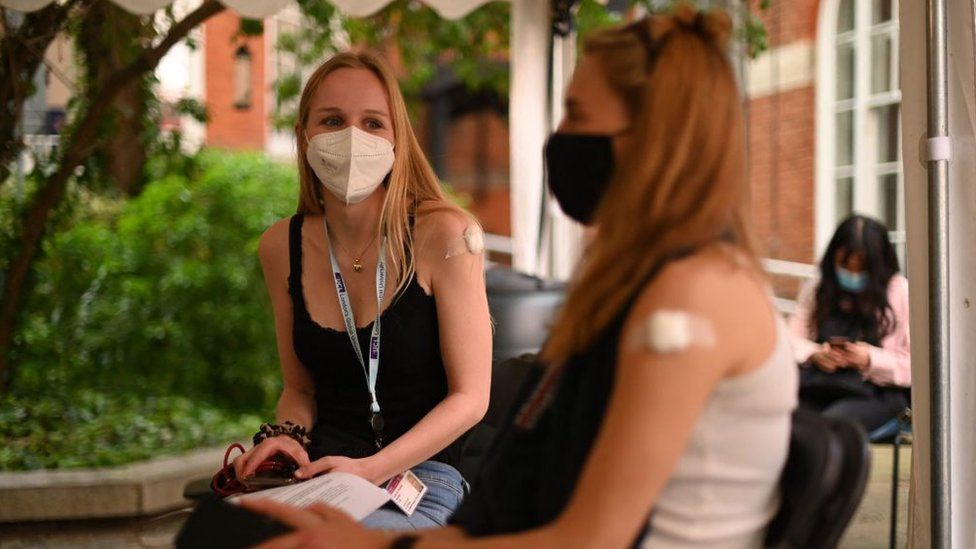
image sourceGetty Images

Apple has become the latest of the US tech giants to rethink its plans for returning to the office as cases of the Delta variant surge. Staff were told in a memo the company would not end remote working until January 2022 at the earliest. Apple had previous told employees they would be back in the office by September, before postponing it to October. In June, a group of employees protested over the plans, saying the company’s lack of flexibility had pushed some people to quit. Google has delayed its return to the office to 18 October and has joined Facebook in saying it will require US workers to be vaccinated.

image sourceGetty Images

A woman who gave birth while seriously ill with Covid-19 has finally returned home to live with her son – seven months later. Hajrah Aslam, from Peterborough, was 35 weeks pregnant in January when she caught coronavirus. After giving birth to her first child, Huzayfah, her oxygen levels fell dangerously low and she was put in an induced coma for six weeks. Later, she needed 11 weeks of rehabilitation therapy, building her strength and working on being able to walk and climb stairs again. “All I could see was my baby boy’s face. I kept on saying his name, even when I was in excruciating pain, I kept on going and going,” says the 28-year-old.
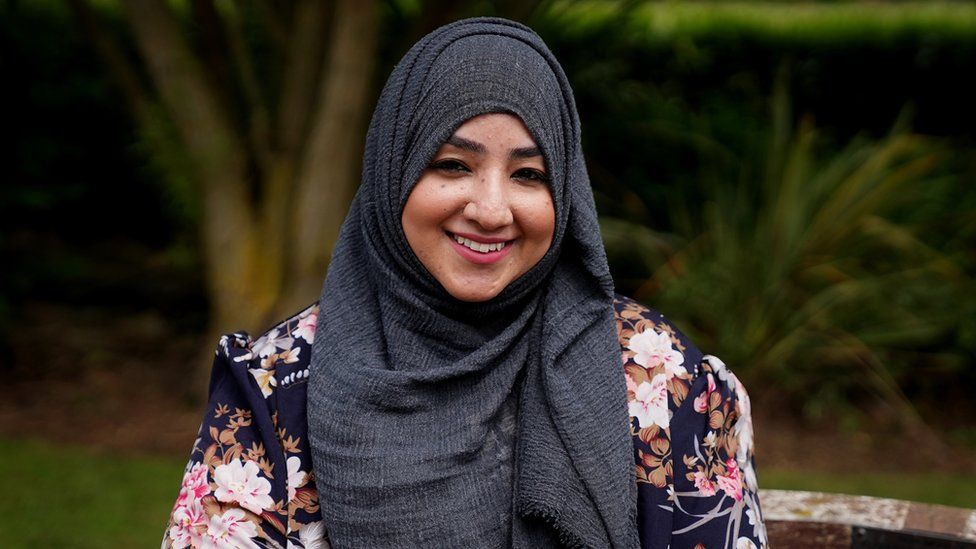
image sourcePA Media

More than 300,000 people aged 16 and 17 have now had their jab. If you or someone you know is still on the fence, take a look at the facts you need to know.
Find further information, advice and guides on our coronavirus page.

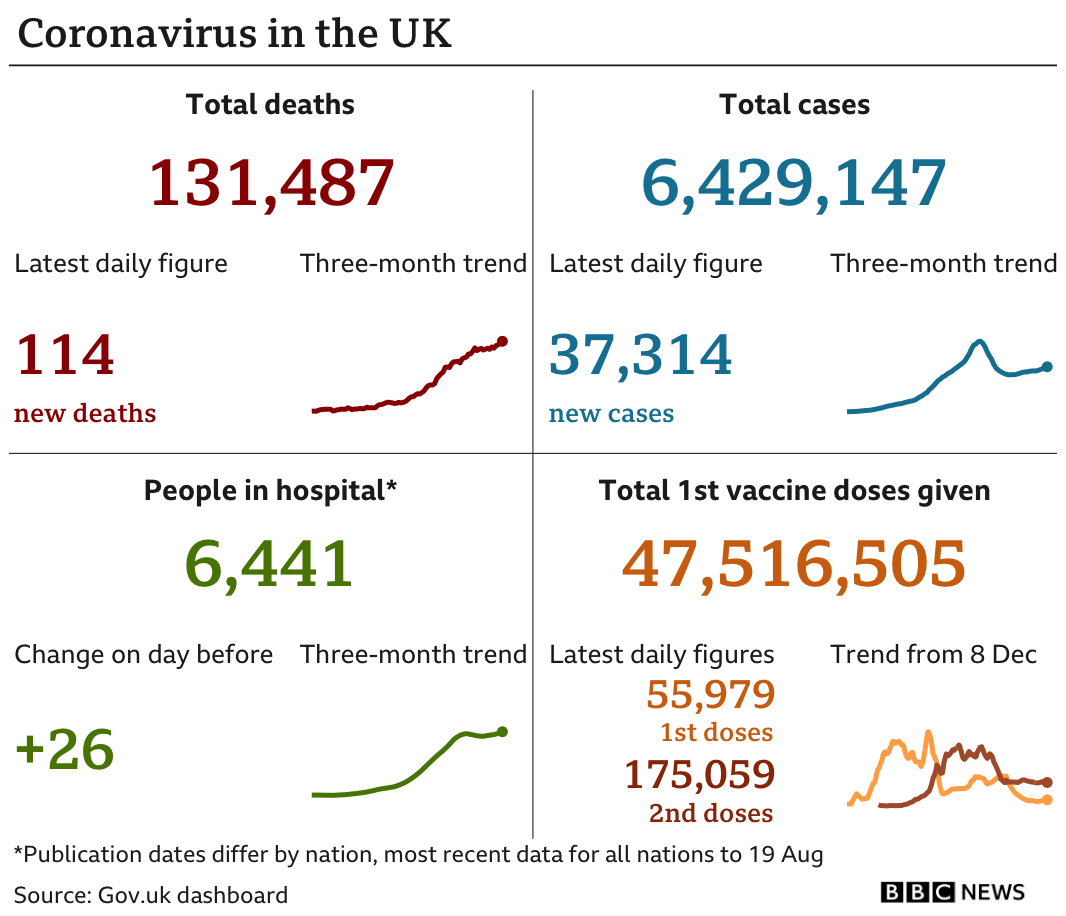

image sourceBBC
What questions do you have about coronavirus?
In some cases, your question will be published, displaying your name, age and location as you provide it, unless you state otherwise. Your contact details will never be published. Please ensure you have read our terms & conditions and privacy policy.
Use this form to ask your question:
If you are reading this page and can’t see the form you will need to visit the mobile version of the BBC website to submit your question or send them via email to YourQuestions@bbc.co.uk. Please include your name, age and location with any question you send in.
